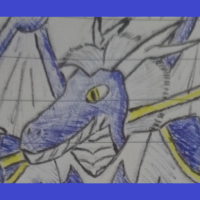I have the feeling that over the past years, we’ve started seeing more TV shows that are either sympathetic towards Hell and Satan, or somewhat negative towards Heaven. I just watched “Hazbin Hotel” today, which isn’t too theological, but clearly is fairly negative towards Heaven.
In “The Good Place”,
Spoilers for The Good Place
the people in The Bad Place end up pushing to improve the whole system, whereas The Good Place is happy to spend hundreds of year not letting people in.
“Little Demon” has Satan as a main character, and he’s more or less sympathetic.
“Ugly Americans” shows demons and Satan as relatively normal, and Hell doesn’t seem too bad.
I only watched the first episode of “Lucifer”, but it’s also more or less sympathetic towards Lucifer.
I have a few more examples (Billy Joel: “I’d rather laugh with the sinners than cry with the saints”, or the very funny German “Ein Münchner im Himmel”, where Heaven is portrayed as fantastically boring), but I won’t list them all here.
My question is: how modern is this? I’ve heard of “Paradise Lost”, and I’ve heard that it portrays Satan somewhat sympathetically, though I found it very difficult to read. And the idea of the snake in the Garden of Eden as having given free will and wisdom to humanity can’t be that modern of a thought, even if it would have been heretical.
Is this something that’s happened in the last 10 years? Are there older examples? Does anyone have a good source I could read?
Note that I don’t claim Satan is always portrayed positively, or Heaven always negatively :).
Milton’s Paradise Lost doesn’t paint Hell as pleasant, but Satan is absolutely the protagonist of the story. That’s 1667.
The idea of Satan as the embodiment of evil is arguably an early medieval borrowing from Zoroastrianism. In the Book of Job he works in conjunction with God as a tester of souls, and his roles in the garden of Eden and the temptation of Jesus aren’t inconsistent with that. And a lot of the popular folklore associated with him originates from morally-ambiguous trickster figures from other traditions that were absorbed into Christianity.
It should also be noted that the Gnostic scriptures, an alternate version of early Christianity, don’t actually mention Satan at all.
The Gnostics associated the Old Testament Jehovah with the Platonic concept of the Demiurge—an imperfect or misguided lesser deity who created the material world but botched it up and included evil as an unintended consequence—as opposed to the New Testament “God” who was the Platonic principle of transcendent Goodness or Unity. So the Gnostics didn’t need a separate Satan, since Jehovah was already covering that role.
That’s because he’s the fucking Demiurge in Gnosticism you armchair theist
I have friends who are still religious and it seems like they’ve pivoted from “lake of fire” to a more “hell is the absence of God” vibes
I live in a crunchy granola area so I just assume that’s how the church here operates to keep patrons.
What the, uh, crunchy hell is a “Crunchy Granola Area”? Or did you just fired the queen of all autocorrect ever & I’m being too obtuse to detect it?
https://www.dictionary.com/browse/crunchy-granola#
- characterized by or defining oneself by ecological awareness, liberal political views, and support or use of natural products and health foods.
My wife often goes “I’m looking like a granola girl today but fuck it”

Crunchy Granola: 1) A phrase used in the 70s to describe the hippiest of the hippies, and 2) A lesser used DnD reference to 'C’haotic 'G’ood, which overlaps with 1 and began shortly after the 70s, probably as Gygax and friends were pretty counterculture.
The type of place where people describe themselves as spiritual but not religious.
It means an area where cosplaying as an environmentally conscious hippie as you drive your SUV to your mid level job in an exploitative corporate/tech/finance firm is in vogue.
Mark Twain had some interesting ideas about Heaven, Hell, and Satan.
If you count Hel (one L) from Norse religion, older than the bible.
the idea of the snake in the Garden of Eden as having given free will and wisdom to humanity can’t be that modern of a thought, even if it would have been heretical.
In Gnosticism, the snake is sometimes identified with Jesus, while the god of the old testament is the demiurge. You’re correct in that the catholic church really didn’t like that.
I’ve noticed this in video games too. For example, in Monster Train you fight as the champions of hell to save what’s left of your home against the forces of light.

I think it is absolutely a reaction to more people becoming non-religious. There is much more in the world that is morally ambiguous than the Bible alone would lead people to believe. Things like my example here: hell frozen over with Satan stuck in an endless dopamine hit cycle, struggling with depression is just one of many ways we have “humanized” Lucifer.
I think, especially, in a world ruled by corruption, that people no longer have faith that those in charge actually have their best interests in mind. You question whether Lucifer was kicked out of heaven for pointing out similar issues with heavenly society. Is he truly the villain in the story? He kills far fewer in Biblical history than God does.
It’s pretty modern if you mean popular, although the idea itself is REALLY old.
Rather than going into specific examples because there are a lot of them (especially in gaming and TV), I’d like to say my piece on cliches.
Basically, cliches come to exist because the cliche trope is a really good idea.
“The Butler did it” as a murder mystery trope is a fantastic idea because some people with too much money will use the protection money affords them to mistreat their employees, providing a great motive you can build on to create a great story with relatable morals and characters. It sets up a character with perfect motives, means and a reasonable position of trust to avoid suspicion.
Similarly, “Hell good, Heaven bad” is a fantastic trope because it lets you step back and analyse things like the negative impacts of religion and how authorities (and the bible) will portray themselves as good regardless of their actual actions. Plus of course there were periods of time where people were told doing virtually anything that didn’t fit into an extremely narrow worldview meant you were going to hell. You know, stuff like basketball and Dungeons and Dragons.
Now, the problem with cliches is when someone sees a popular idea that’s also a very good idea, but doesn’t understand why it was a good idea. As a result, when they use the idea, it rings hollow at absolute best, and that kind of terrible execution of something that’s already known and popular tends to be especially disappointing. I think the best example is The Hunger Games, which absolutely defined young adult dystopian fiction for years because it showed how the media industry mistreats its workers, and Alleigant, which used a lot of ideas from Hunger Games (and some other things) without actually understanding the ideas.
(TLDR: Hunger Games has a love triangle as a prominent plot element, but the actual reason is that it’s perpetuated by the media pretty much on pain of death for Katniss so that she can entertain the viewers. By contrast, Alleigant also has a love triangle but the triangle IS the plot element and the author bends over backwards to make it happen despite the fact none of the characters really feel like they’re suitable for it)
Anyways, cliches aren’t bad but you need to know how, why, and when to use them in order to actually fulfil their potential, and the heaven-hell one you’ve mentioned above is no exception.
This is an element of my novel series’ setting. I’m not trying to advertise it, but if you want more details, and how to access my so far only published book, DM me. I will warn you that only after publishing 1st edition did I realize how important accessibility is. The subject matter is confusing without my old writing style already. The only people who finished it are writers who knew to move on if they didn’t understand something, while my relatives gave up after the first page.
The way I interpreted demons or devils is based on Islamic myths. “Jinn” or “spirit” is the term I use for all such creatures. “Demons” or “devils” are those antagonized by angels, or are spirits that actively oppose them. According to the myth, humans, jinm, and other intelligent creatures that supposedly lived on earth, all have free will, while angels do not. I don’t see my demons as a manifestation of evil, but people with flaws. Angels, however, I’ve discovered are evil themselves, but believe their collective decisions are completely justifiable. They only appear as good cause they’re overall very good at PR and propaganda.
As for stuff outside of my work, I’ve been told Lord of Light has a similar vibe to my book. God’s Demon is a book about demons aka fallen angels going to war in hell. I didn’t entirely like kt though and did not read the sequel. I found some of its ideas interesting enough to finjsh the first book at least.
I’ll reply to this if I think of more. I have one or two artbooks in mind, but I don’t remember their names.






